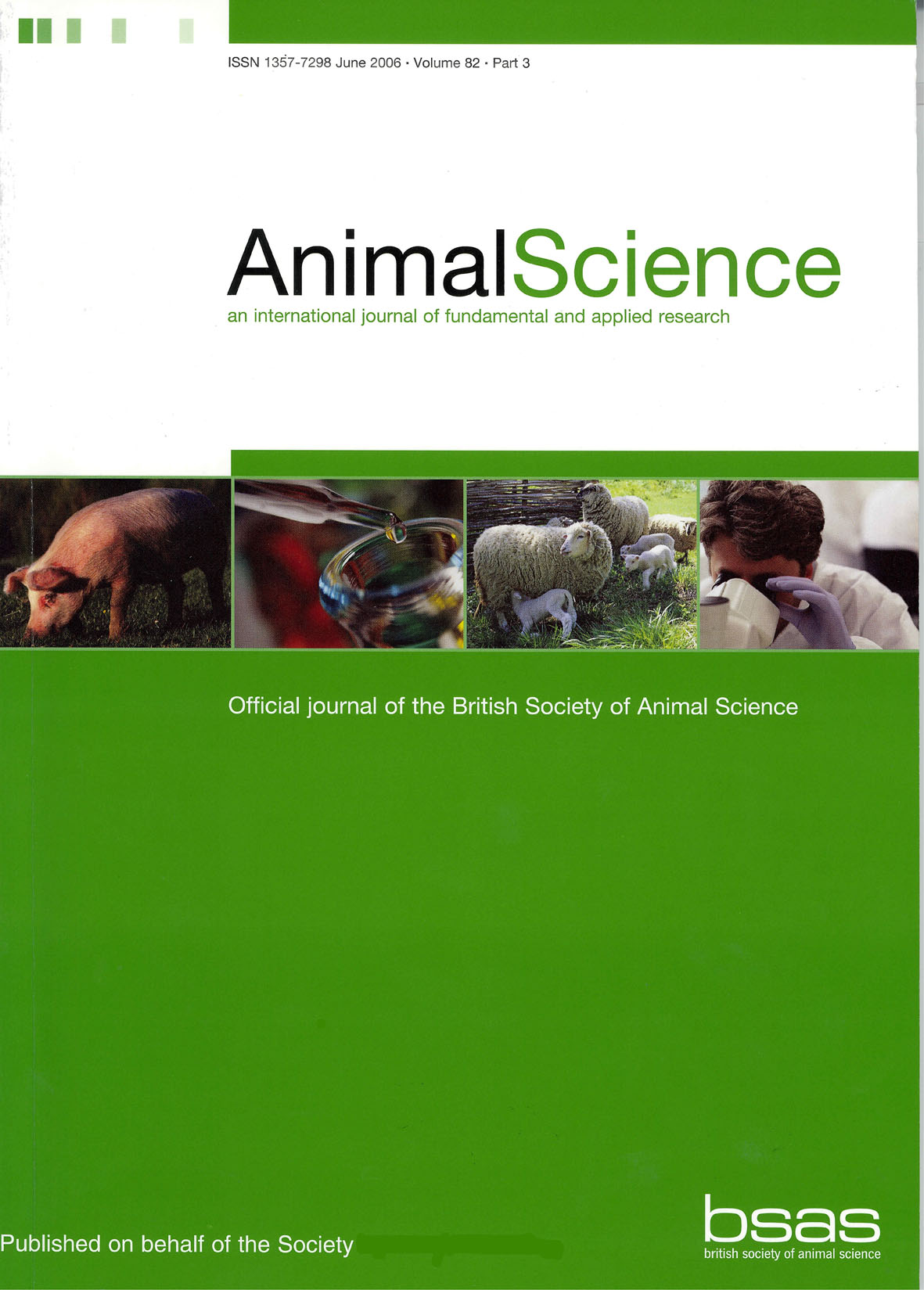Article contents
Growth hormone response to infusion of somatostatin in dairy calves: testing its use as a diagnostic tool for genetic merit
Published online by Cambridge University Press: 18 August 2016
Abstract
This paper describes a two-part study evaluating the use of growth hormone (GH) response to infusions of somatostatin (SRIF) and GH-releasing factor (GRF) as an indicator of genetic merit in dairy cattle. The first part of the study involved the development of a standard test procedure. This was achieved in two sub-trials, the first testing three SRIF doses, 0·6, 3·0 and 15 µg/kg per h, given over an infusion length of 3 h. The second involved infusing 3·0 μg/kg per h SRIF for either 20 min, 1 h or 3 h. The GH response was measured in serum during the infusion and for 2 h following cessation, during which time a rebound response in GH occurred. As a consequence of these trials, a total of 40 British Friesian calves from two lines genetically divergent for yield traits were infused with 3·0 μg/kg per h for a period of 1 h and at the end of the infusion given 0·1 μg/kg GRF. Five hours later, GRF was administered without SRIF. The protocol was repeated on 2 days consecutively. Results suggested that calves of high merit had lower SRIF-induced baselines than their low-line contemporaries. There were no differences in the GH concentrations immediately following GRF administration, either with or without SRIF. The results from this trial, together with previously published work, indicated that calves selected for high milk fat plus milk protein production may be more sensitive to SRIF such that GH is regulated by lower concentrations of SRIF. However, the practical use of GH response to SRIF as an indicator of genetic merit for dairy cattle may be limited because of logistical difficulties in implementation.
- Type
- Breeding and genetics
- Information
- Copyright
- Copyright © British Society of Animal Science 2000
References
- 4
- Cited by


